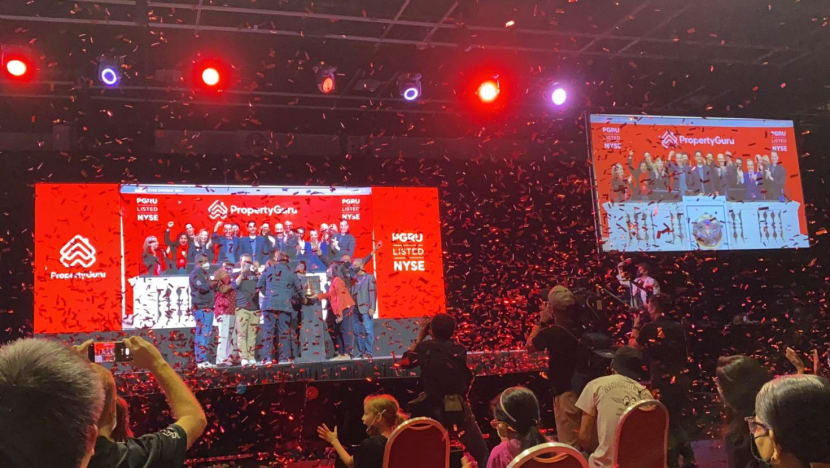Author: Sheldon
VerSe’s parent company Dailyhunt raises $805-million in funding, bringing its valuation to $5-billion
VerSe Innovation said on Wednesday that it had raised $805-million, bringing its valuation to a whopping $5-billion in its latest funding round. VerSe is the owner of the popular local language content platform Dailyhunt and also Josh, a short video platform with 350-million and 150-million monthly active users, respectively.
The company has said that it looks to deepen and broaden its AI/ML capabilities and data science capabilities to further cement its leadership position across all user, engagement & retention metrics, drive deeper Monetization, including influencers, E-Commerce, and foray into Web 3.0 experiences.
Moreover, the investment will also be focused on strengthening the company’s leadership position as the largest, fastest-growing local language AI-driven content platform in the country. The company will also be looking into investing in new efforts such as live streaming to compete with rivals such as ShareCat’s Moj and Glance’s Roposo.
The latest funding round saw Canada Pension Plan Investment Board (CPP Investments) lead the round with $425-million. At the same time, other investors, including Ontario Teachers’ Pension Plan Board, Luxor Capital, and Sumeru Ventures, participated in the round.
Virendra Gupta, founder, and Umang Bedi, co-founder of VerSe Innovation, said in a joint statement that “This investment comes at a time when we’re on a path to further expand our offerings, monetization models, deliver superlative Web 3.0 experiences for the globe and create an IPO scale business.”
Additionally, Bedi stated, “With a strategic focus on video content and building for India, we have seen explosive growth emerging from the next billion users coming out of regional India.”
The latest investment comes close to over $650-million fundraising from investors including Siguler Guff, Carlyle Group, and Baillie Gifford, bringing the company’s total capital raised in the past year to $1.5-billion.
Indian Edtech Startup, Classplus is one step closer to becoming a unicorn company after acquiring fresh funds of $70-million
Classplus which is an Indian-based edtech startup that offers a digital platform for coaching centers announced on Tuesday that it has raised fresh funds of $70-million in a Series D funding round that was co-led by Alpha Wave Global and Tiger Global Management.
“We like that the company can successfully cater to the large offline market of educators across segments such as K-12, test prep, etc. We also see a significant improvement in end tutor economics as a result of using Classplus – this results in sector-leading monetization and retention trends,” said Navroz D. Udwadia, Co-Founder, Alpha Wave.
The latest funding round saw Abu Dhabi-based Chimera Ventures come in as a new investor while existing investors such as RTP Global have doubled down on their investment in the company and participated in the financing.
The latest funding round comes after the startup raised $65-million in a Series C funding round in June last year that was led by Tiger Global Management.
Since its founding, Classplus has raised $160 million including investors such as Blume Ventures, Sequoia Capital India’s Surge, Spiral Ventures, Strive, and Times Internet.
With the latest funding infusion, the valuation of the startup has now been valued at $600-million which brings Classplus a step closer to being a unicorn company.
Mukul Rustagi who is the CEO and Co-founder of Classplus stated that “We’ll be deploying the freshly infused funds to take our product up by notches and expand our presence globally. Going forward, we’ll also be investing in new acquisitions and partnerships that will enable us to continue delivering a best-in-class experience to the educators and helping them create an impact in the education system by building bigger and stronger businesses.”
Classplus was founded in 2018 by Rustagi and Bhaswat Agarwal as a SaaS platform that allows educators and content creators to build their online presence, digitize their offline tuition centers and sell their courses online.
The company says that it has seen massive adoption from not just academic educators such as exam prep categories but also non-academic content creators from categories like fitness & lifestyle, personal finance, language training, and programming, etc.
The company claims that 75% of its educator base comes from tier 2 Indian cities and beyond. It serves more than 100,000 educators and content creators from over 3,000 towns and cities.
Classplus has also recently announced expansion into Southeast Asian markets in countries such as Malaysia, Vietnam, and Singapore.
Southeast Asian property listings platform PropertyGuru makes debut on NYSE
On March 18, Singapore-based property listing platform PropertyGuru made its public debut on the New York Stock Exchange (NYSE) through a successful SPAC merger with Bridgetown 2 Holdings.
In a press statement, PropertyGuru CEO Hari V. Krishnan said, “Our successful listing on the NYSE will allow us to open more doors for the millions of residents across Southeast Asia looking for that perfect home or property investment.”
Continuing on his press statement, the PropertyGuru CEO also said that as more affluent and digitally-enabled populations enter the real estate market, PropertyGuru would have a tremendous opportunity. The platform will also enable global investors to access this high-growth market by going public.
PropertyGuru began trading on the NYSE under the ticker PGRU, which opened at $8.61 and closed at the end of the trade at $8.46.
PropertyGuru received US$254-million in gross proceeds raised in public listing via completion of a business combination with Bridgetown 2 Holdings Ltd with greater access to global financial markets to help support continued growth.
As investors continue to take their cash off public equities due to accelerated Fed tearing and ongoing political uncertainty surrounding the war in Ukraine, PropertyGuru’s de-SPAC process with Bridgetown couldn’t have come at a more challenging time.
However, according to Boardroom Alpha data, PropertyGuru’s SPAC partner, Bridgetown 2 Holdings, recorded a SPAC redemption rate of 59%, which is much lower than the average of 88% for the whole last month of February.
PropertyGuru was founded by Steve Melhuish and Jani Rautiainen in 2007, who were each driven by their personal frustrations of finding a home in Singapore.
PropertyGuru serves five Southeast Asian markets: Singapore, Indonesia, Thailand, Malaysia, and Vietnam. It helps over 52 million property seekers and hosts more than 3.3 million property listings every month. Additionally, the platform also has a network of over 57 million property agents on its platform.
Indonesia’s tech firm GoTo seeks to raise $1.26-billion in local IPO
GoTo is Indonesia’s most prominent tech firm formed by ride-hailing giant Gojek and e-commerce firm PT Tokopedia. According to the company’s prospectus, the firm is looking to raise up to 17.992 trillion rupiah ($1.26-billion) through an initial public offering on the Indonesian Stock Exchange (IDX), as it looks to gauge public demand for the issue.
The Jakarta-based company has set a price range of 316 to 346 rupiah apiece, where the company will sell 52 billion shares, representing 4.35% of total shares. This places the market valuation of the company as high as $28.8-billion.
GoTo’s book-building exercise will be held from March 15 to 22, 2022. GoTo’s listing on IDX is scheduled for April 4, and following the local IPO, there is expected to be an international listing.
This comes after the company has raised more than $1.3-billion in a funding round last year led by Abu Dhabi Investment Authority (ADIA) from investors that include Fidelity International, Malaysian sovereign wealth fund Khazanah and Primavera Capital.
GoTo is expected to proceed with its IPO plans despite industry experts warning that the tech giant may need to lower its targets due to uncertain market conditions.
This includes a sharp decline in tech stocks from the U.S. to China to Southeast Asia, which has battered its two main peers Sea Ltd and Grab Holdings Ltd, in recent months.
GoTo posted gross revenue of $1-billion and a gross transaction value (GTV) of $28.8 billion in the 12 months ended September. The company has more than 14-million registered merchants and 2.5-million registered drivers as of September 2021.
Singapore-based voice artificial intelligence startup raises US$50-million in Series B funding round led by Tiger Global and Caotue
Al Rudder was founded in 2019 to develop advanced voice AI technology to help businesses solve B2C communication challenges across various industries, including fintech, insurance, banking and finance, and e-commerce.
AI Rudder stands out from the rest of the competition as the company’s AI-powered voice assistants can recognize Southeast Asian accents and languages such as Mandarin Chinese, Tagalog, Bahasa, Thai, Vietnamese, etc.
Recently, the Singapore-based voice artificial intelligence (AI) company AI rudder has raised US$50-million in a Series B round from US funds Tiger Global and Coatue. This is in addition to the US$10-million raised in a Series A round in November 2021 and US$3-million raised in total in two seed rounds in 2020, which brings AI Rudder’s total funding in the last 12 months to US$60-million.
The Co-founder and Managing Director of the company recently said in a statement that “Advancements in the machine and deep learning technologies are opening new possibilities for voice AI to be more human-like. This fresh infusion of capital will support continuous enhancements to our suite of products, enabling our clients to deliver more frictionless digital experiences to their customers.”
The startup plans to use the new investment to double its headcount, add more clients, and increase its global presence. Currently, the platform can recognize and support more than 15 languages, including English, Bahasa, Chinese, Hindi, Spanish, Tamil, Thai, Tagalog, and Vietnamese. It plans to add Arabic, Cantonese, French, German, Japanese, Korean, and Portuguese to its platform.
Today, AI Rudder has more than 200 clients and claims to have experienced 400 percent revenue growth year on year.





